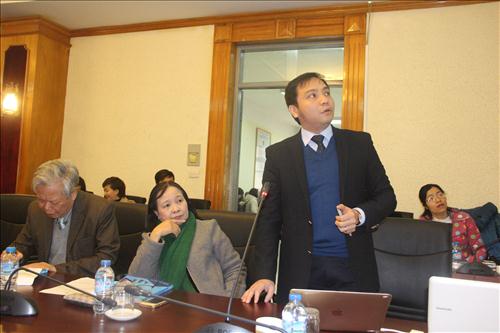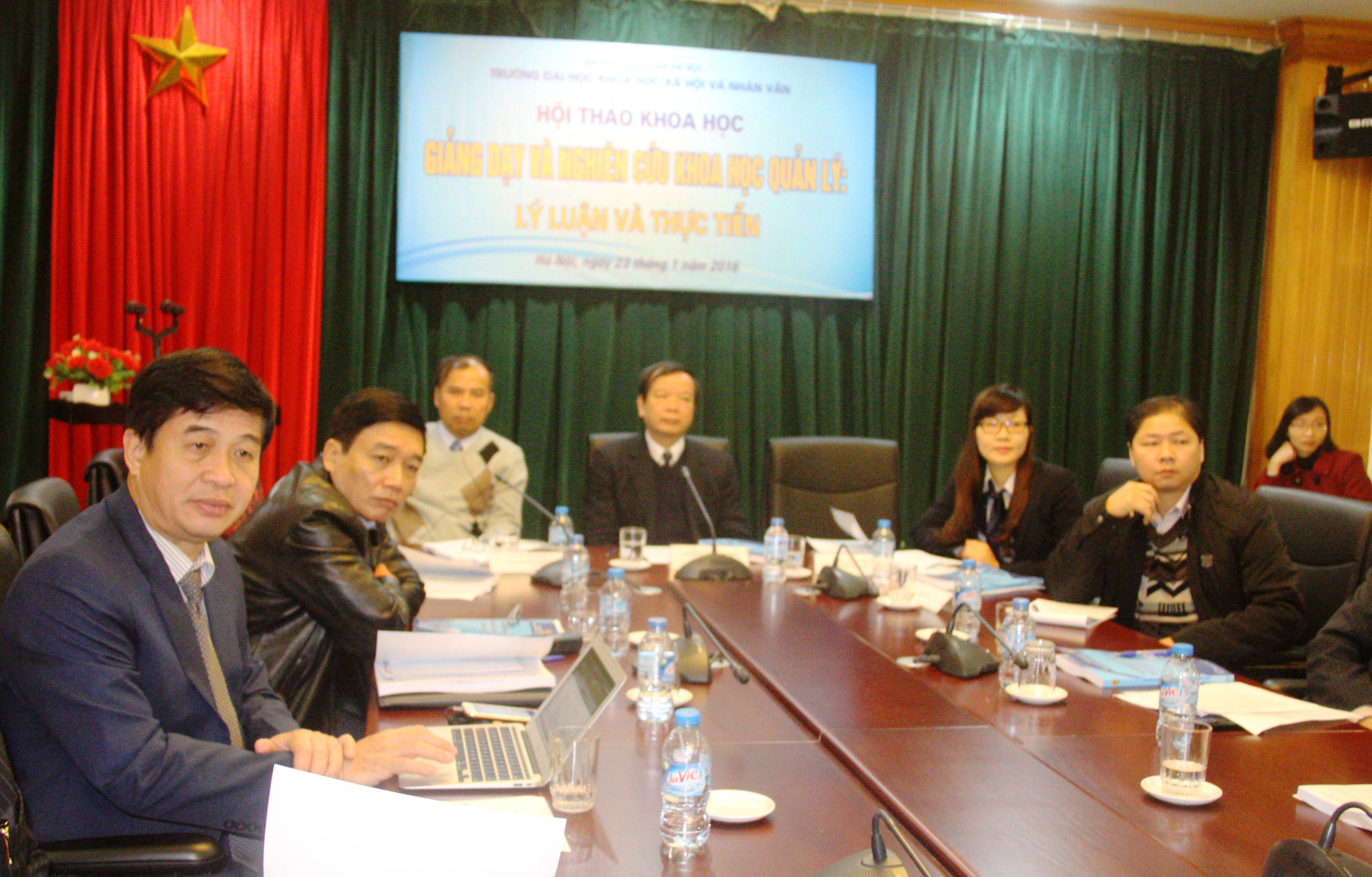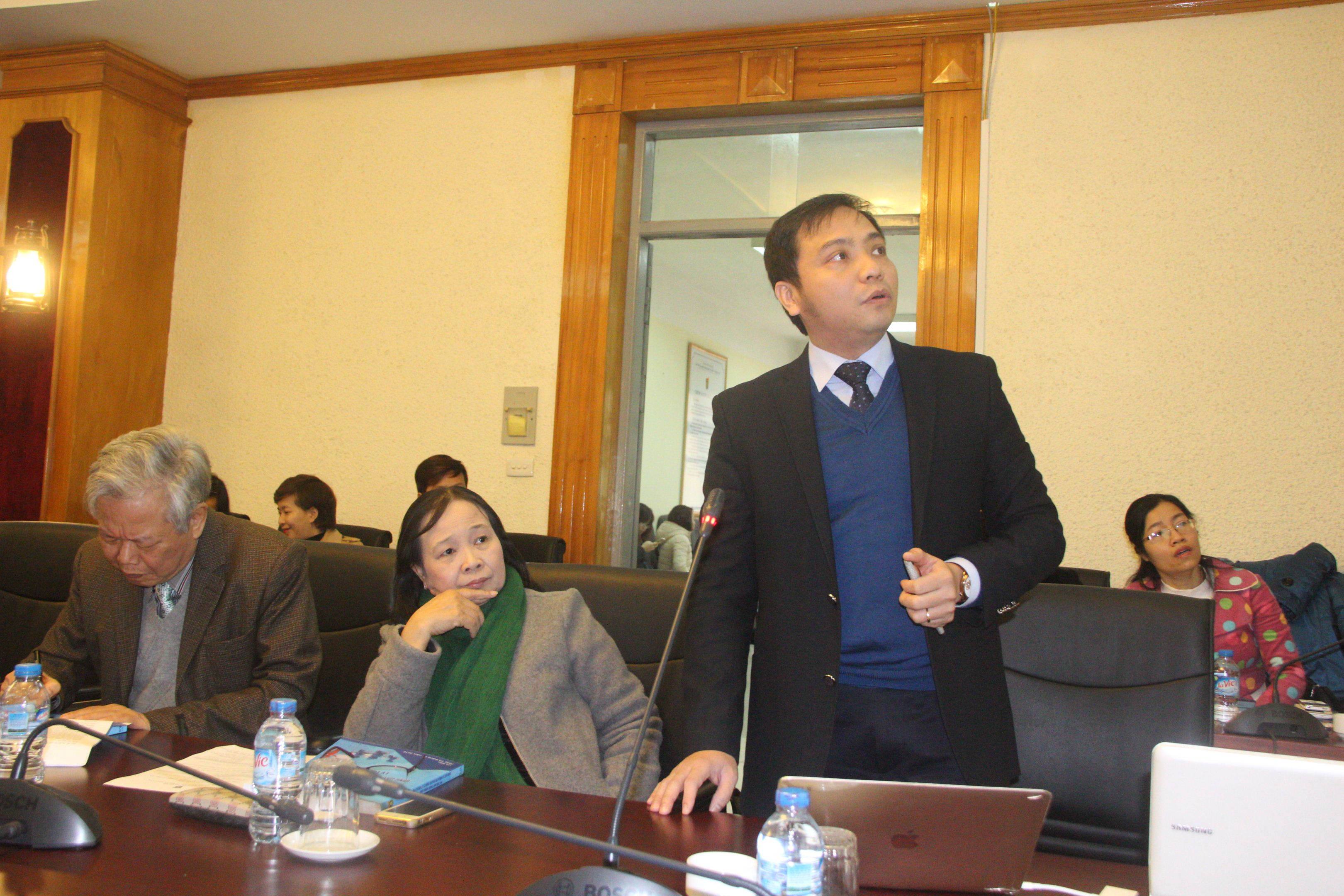
The University of Social Sciences and Humanities has started training undergraduates in Social Management since 1995, training graduate students in Science and Technology Management since 1999 and building a training program on intellectual property since 1999. These are the precursors to the development of the Faculty of Management Science. In response to the country's demand for management human resources, on September 30, 2002, the President of VNU signed Decision No. 652/TCCB to establish the Department of Management Science under the University of Social Sciences and Humanities, on the basis of merging the Department of Social Management (under the Faculty of Philosophy) and the Department of Epistemology (under the Faculty of Sociology). Then, on August 11, 2006, the President of VNU signed Decision No. 782/QD-TCCB on the establishment of the Faculty of Management Science. The main functions and tasks of the Faculty are to train undergraduates, graduate students and conduct scientific research on Management Science, including four main areas:science and technology management, human resource management, social policy and intellectual property management.Through the practical implementation of training tasks for nearly 15 years, the Faculty of Management Science has continuously developed, diversified its majors, training systems and improved the quality of training and scientific research to effectively meet the practical needs of management human resources. The total number of departments of the faculty is 4:Department of Social Management, Department of Science and Technology Policy and Management, Department of Intellectual Property, Department of Theory and MethodologyUp to now, the Faculty has trained 13 courses of standard graduates (from K44 to K56), 8 courses of high-level graduates (from K49 to K56).

Over the past years, the research and teaching of Management Science (KHQL) at the University of Social Sciences and Humanities has made many important contributions to training management human resources for the whole country at the undergraduate and postgraduate levels; participating in research summarizing practical management experiences in our country and some other countries; organizing research, absorbing, disseminating and applying the world's management quintessence; ... Currently, the reality of life has been posing new problems, new challenges and new opportunities for the research and teaching of KHQL in our country. In that context, the conference is a scientific activity to assess the current situation, record achievements and point out the limitations of the research and teaching of KHQL; on that basis, propose solutions to improve the effectiveness of training and research and application of this field of study to serve the development of society.

The conference had 26 presentations by scientists from universities, research institutes, enterprises, etc. with content discussing theoretical issues, terminology in teaching and researching management science, practical issues arising in teaching and researching management science, new theories in management science research, contemporary issues in teaching and researching management science and methods of researching and teaching management science.
Author:Thanh Ha
Newer news
Older news